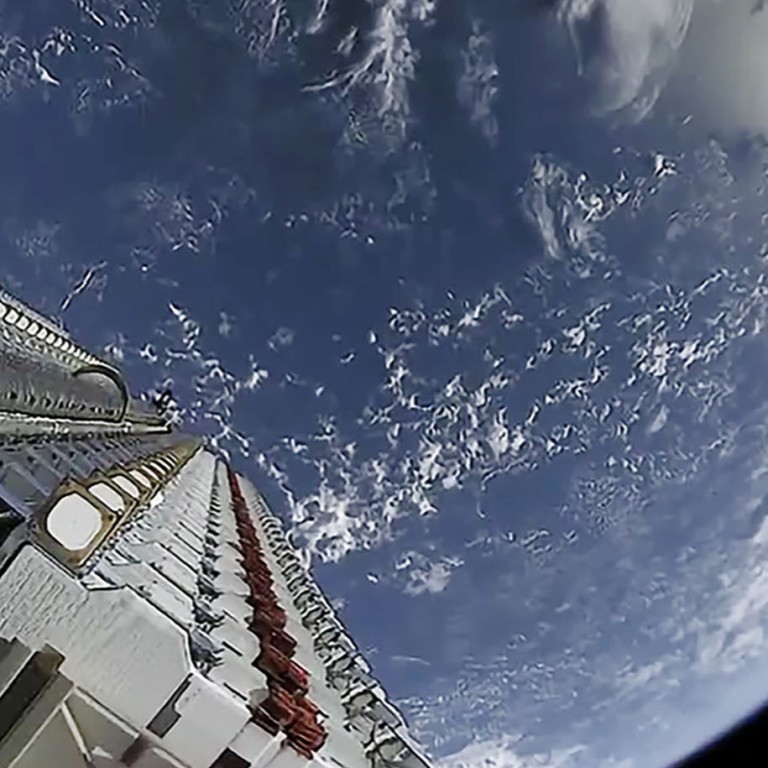
SpaceX satellites’ encounters with Chinese space station were not emergencies, US says
- Note to UN denies claims in a previous note from China that the station had to take evasive action, and says China failed to communicate
- US Space Command sends warnings, including to China, of dangerously close approaches, but the encounters with Tiangong were not in that category, it says
In December, China sent a note verbale – an unsigned message less formal than a diplomatic note – to the United Nations to complain that there had been “close encounters” last July and October when internet satellites approached the Tiangong station in orbit.
However, the US side has responded with its own note verbale, saying that neither incident referred to by China amounted to an emergency.
“Because the activities did not meet the threshold of established emergency collision criteria, emergency notifications were not warranted in either case,” said the note, sent to the UN Office of Outer Space Affairs in Vienna and dated January 28.
“If there had been a significant probability of collision involving the [space station], the United States would have provided a close approach notification directly to the designated Chinese point of contact.”
It said that United States Space Command routinely gave warnings to other nations, including China since 2014, of dangerously close approaches between space satellites and debris.
The US note also said China had not raised concerns about the danger that its note to the UN said had been posed by Starlink-1095 and Starlink-2305. The two satellites form part of a constellation providing internet access to most of the world.
“The United States is unaware of any contact or attempted contact by China with the United States Space Command, the operators of Starlink-1095 and Starlink-2305 or any other United States entity to share information or concerns about the stated incidents prior to the note verbale from China to the secretary general,” the note said.
Explainer: China is sending 3 astronauts into orbit. Who and what is now in space?
China’s note had called on the UN to remind all parties to the Outer Space Treaty that they were required to “bear international responsibility for national activities in outer space … whether such activities are carried on by governmental agencies or by non-governmental entities”.
The American note said the Chinese authorities had opted against using some of the tools that facilitated advance warnings about potentially dangerous situations, and all nations should be encouraged to “provide updated contact information on designated entities authorised to engage in timely exchanges”.
It said the US “believes that detailed consultations on measures to reduce the risk of collision between United States space objects and the human space flight activities of other nations should be conducted directly, through bilateral channels, to facilitate efficient and timely sharing of information”.
Musk had previously denied China’s claims, saying Starlink satellites were not “effectively blocking others in any way”. SpaceX has also said that its satellites are equipped with autonomous orbit-changing features to avoid collisions.


